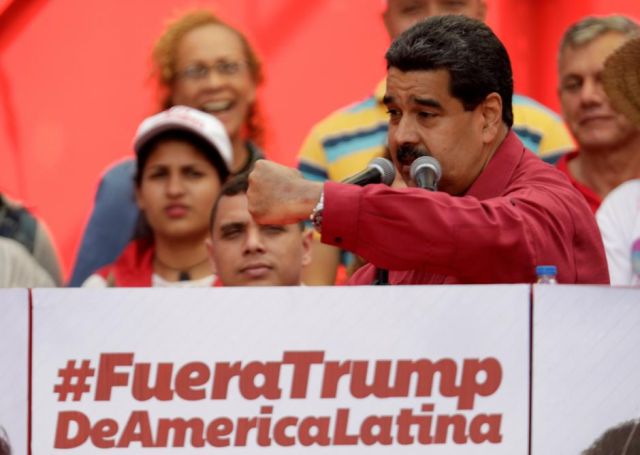
With the Venezuelan right-wing opposition in disarray after failing to overthrow President Nicolas Maduro through violent protest, and divided in the face of the upcoming October 15 regional elections, the frontline of the battle for Venezuela’s future has shifted outside its borders.
The most recent examples of this have been the economic sanctions imposed by the US, with a number of European countries threatening to follow suit.
At the same time, the UN’s Office of the High Commissioner for Human Rights has accused Venezuela of supposed “crimes against humanity”.
In this increasingly internationalised fight, US-Venezuelan activist Williams Camacaro told Green Left Weekly: “Venezuela is losing the communication war”.
One of the biggest challenges Venezuela faces is the flood of fake news storied emanating from the country.
For example, it was widely reported that Venezuelans, driven by extreme hunger, had invaded a zoo in Maracaibo and eaten the animals inside. Despite the original source being anonymous and never verified, the story was quickly picked up and run around the globe as part of the ongoing media war against Venezuela.
At the same time, opposition leaders have been campaigning heavily outside the country to compensate for their lack of support within Venezuela. Camacaro said Lilian Tintori, the wife of opposition leader Leopoldo Lopez who is under house arrest for his role in a wave of violent protests in 2014, had made more than 20 overseas trips to 30 countries.
Together with other opposition leaders, Tintori has been welcomed with open arms in the United States and Europe, each time given a platform in the media from which to continue lying about President Nicolas Maduro’s government.
Meanwhile, as part of its campaign to portray Venezuela as a humanitarian crisis, the US government has said it will accept Venezuelans as refugees. This comes at the same time as it tightens access for all other immigrants.
These predominantly white middle-class Venezuelans have been involved in several attacks on Maduro supporters in the US, said Camacaro. “They think they can do anything, anywhere,” he added, noting they were shocked when a number of them were recently arrested in Miami because of their violent actions.
Camacaro spoke of another example of how the campaign to demonise Venezuela is being waged.
He said that in July, two US trade union leaders on their way to Venezuela to observe the constituent assembly elections were stopped by American Airlines crew members before boarding their flights. They were told that it was too dangerous to go to Caracas as they were likely to be raped or kidnapped if they travelled.
Several airlines, including American Airlines, appear to have joined the economic blockade on Venezuela, cutting services and in some cases halting all flights to the country.
“It remains to be seen whether this communication war against Venezuela can be stopped in its tracks,” said Camacaro.
What is certain is that international solidarity is key in this increasingly internationalised battle.
Like the article? Subscribe to Green Left now! You can also like us on Facebook and follow us on Twitter.